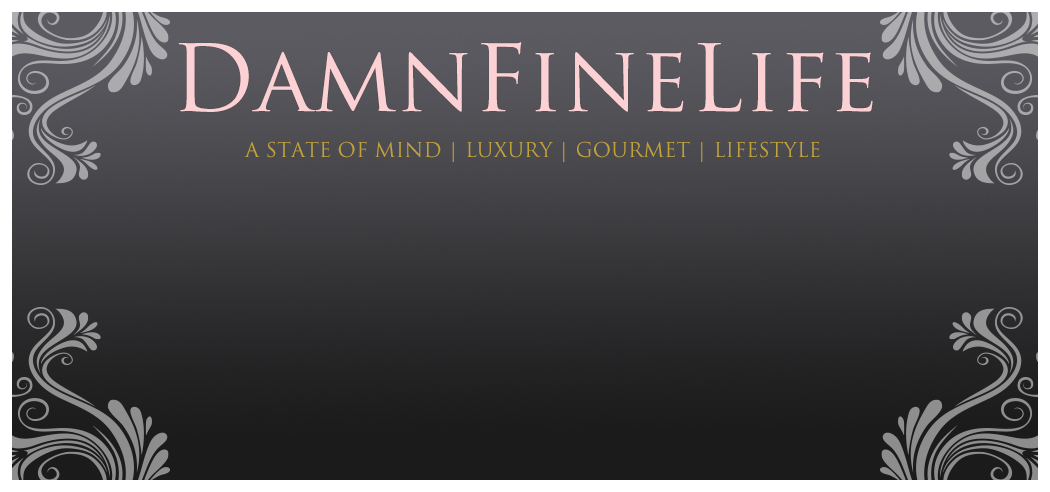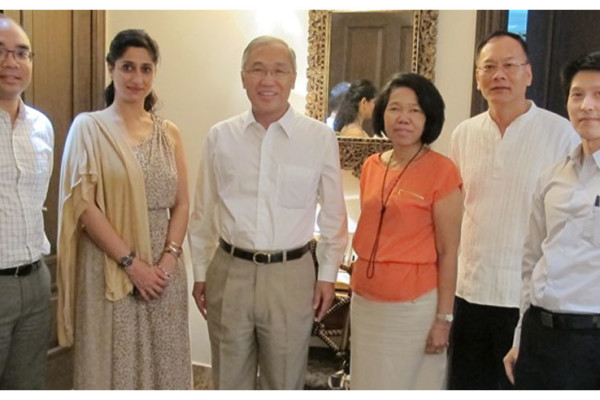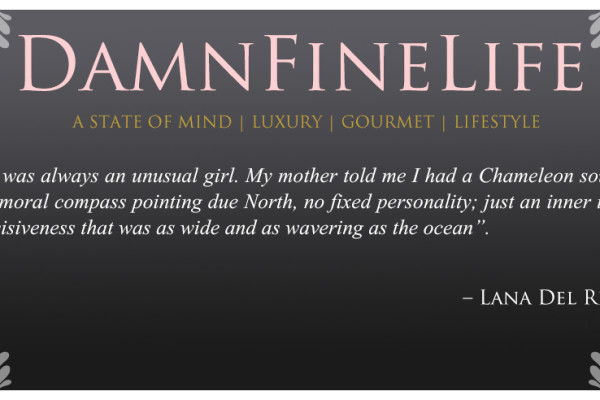Dear Rinku,
Was a pleasure meeting you. Will mail you the published link soon.
Watch out Boston restaurants – you have a new food critic in town.
She is a poised, exotic and an elegant dark-haired beauty, but pretty things can pack a punch.
Hailing all the way from New Delhi, Rinku Madan sips a sparkling pink Rosato Cava inside Cambridge’s chic The Elephant Walk. The restaurant’s dim lighting accentuates the perfectly painted teal-rimmed mesmerizing hazel eyes of this former chef, acclaimed author of the “Times Nightlife Guide”, and a food columnist for The Times of India.
“I’m a sparkling sort of person,” she says, “in the sense of drinks. I love good champagnes. I love good sparkling reds, which are a rarity in India.”
But in India, spotting a sparkling red is somewhat simpler to find than a woman like Madan. Despite coming from an overtly conservative family, she sports a tiny, watermelon-pink flower tattoo between her thumb and pointer finger. She is unabashed and forward, yet mannered and modest. This independent, beautiful woman left her home this summer to study Journalism at Harvard University – without her family’s approval. They do not like her traveling alone, unaccompanied by her family.
Still, Madan needed to do it for herself.
Choosing edification over domesticity, Madan first ventured out alone in 2010 when she enrolled in Manhattan’s French Culinary Institute, a division of the Culinary Institute of America (CIA). There, she became a certified food writer taught by the legendary Alan Richman, a 14-time James Beard Foundation Award winner for culinary writing.
“I love that guy,” she says with a grin, feeding on fond memories of Richman. “You can’t really teach anyone how to write. But you get a different perspective – a totally different perspective, from someone who is so, so huge.”
Simultaneously during her 2010 New York stay, Madan also became a certified wine pairist, learning from the acclaimed Andrew Fischer. So when she says The Elephant Walk has a “lovely collection of rosés, which are affordable and good,” her words are a certainty.
She sits erect in The Elephant Walk’s crimson-cushioned wooden booth, wearing a silk brown shirt bearing geometric beige designs. Her lovely tanned olive skin is enhanced in the restaurant’s golden light. Her diamond earrings twinkle as the white gems in her red bracelet shine. Black dress shorts peek out from underneath the timber table, and her elegant upper attire is contrasted with playful gold flip-flops on her feet.
She orders three courses from the $29.95 Prix Fixe Menu: the rouleaux starter, the chilled avocado citrus soup, and the loc lac entreé.
“It’s a traditional Cambodian dish,” Madan says, of the cubed beef tenderloin formally known as loc lac. “I am very interested in trying that, and because it’s what the chef has created.”
Madan shares an intimate connection with chefs because she worked as one on and off for about ten years, beginning in 2000. She trained and worked at the members-only Chambers restaurant in New Delhi’s five-star Taj Mahal Hotel on Mansingh Road. The Chambers restaurant is extremely exclusive. Its clientele only accommodates high-profile individuals whose wealth and power warrant membership in the equally salient restaurant. Frequent diners, Madan says, include prominent Delhi lawyers like Raian Karanjawala and mega-billionaire businessman Mukesh Ambani etc. “Anybody and everybody of relevance eats there,” she says.
Simple luck and circumstance led her into the Taj kitchen.
“Things with me are not planned,” she says, employing an innocent British-Indian accent. “Like, people plan their lives, I had no plans. I never knew that I would work in my life. I always wanted to do something, but what – I had no clue. All i knew was that someone up there was planning things for me.”
Madan is a Hindu and prays every morning after bathing. She carries pictures of Hindu gods with her at all times.
She places her prix fixe order with an Elephant Walk server at 10:01 p.m., a minute past the restaurant’s call for last seating on a Tuesday night. The typically popular eatery is empty aside from a pair of patrons finishing their French dessert. The restaurant, which serves distinct menus of both traditional French and Cambodian dishes, is decorated with elephant murals, Buddha statues, and Asian art.
“He has such an attitude,” Madan whispers, glaring at the tattooed-and-pierced Bostonian server. He was transparently not fond of serving the restaurant’s last table near closing time.
After quickly ordering, for fear of further agitating the server, Madan asks to keep her menu. She peruses it with hungry eyes, gobbling up all descriptions of sautéed cubanelle peppers and tamarind-saturated duck breast. She surreptitiously removes the off-white cardstock from its leather bound jacket, and quickly tucks the menu into her fortuitously large, white patent leather purse.
“You know, this was taught to us by my professor in CIA,” she says, her eyes still searching the empty restaurant for condemnation from the unfriendly waiter. “He said you must do that as a food writer”, she says showing her million dollar smile shyly.
Since June 2011, Madan has been penning restaurant reviews and bar critiques for Delhi division of The Times of India. She was personally hired by Vineet Jain, the main managing director for the newspaper.
“That man has so much class,” she says affirmatively. “I was only in the company because of him. He’s young, intelligent and approachable. He’s always there for you. I mean, he has his own down to earth way of being one with us. But he put me through to the right people, read my articles and It went the proper way it should go.”
The surly waiter saunters over and drops down Madan’s first course. Her rouleaux is an elegant term for two Cambodian spring rolls filled with ground pork resting on a bed of greens with decorative sweet sauce.
Madan politely asks the server how best to eat the roll. He curtly says, “With your hands,” obviously overlooking the dilation in her eyes, smile in her syllables, and excitement in her tone.
“We have a Vietnamese restaurant in Delhi – The Blue Ginger,” she says, “which is one of my favorites. We do have to make our own rolls too. I like these sort of things that are not run of the mill.”
She blissfully wraps a toasted golden cylinder in lettuce and slowly nibbles on her spring roll with a delicate chew.
“I’m a very curious eater,” she says. “That’s why I hate going for buffets. Seeing so much food makes me lose my appetite and I feel if I don’t try everything, I’ve missed out. Then I overeat.”
She claims she will never write an article about something which she has not eaten or drank. When reviewing a restaurant, she critiques everything: the flavor and freshness of ingredients and the authenticity of the cuisine, coupled with the restaurant’s ambiance, bar scene, service, and nightlife. She also searches for a certain je ne sais quoi.
“Every place is not about food,” she says. “There are some places where special memories are attached.”
She believes the art of food writing cannot be taught, since it recounts an individual’s own experiences. However, she shares a few secrets.
“It doesn’t have to be boring, like a documentary,” she says. “People should want to read you. You have to include incidents, involve the readers and some humour.”
She practices what she preaches. In a Dec. 2011 food column from the Sunday Times of India, Madan writes about the upcoming popularity of alcohol-based desserts. Her lead begins with, “For those who love to get a little tipsy at the end of their meal, here’s some news you can say cheers to.”
As she continues to dress her spring roll in a lettuce gown, the Elephant Walk server presents her second course. She comments that the restaurant is rushing her by bringing out her second dish while she is still savoring her first. To be fair to her, the Elephant Walk does advertise that patrons reserving their last seating are granted a full hour and a half to leisurely enjoy their meals.
Madan stops her methodic chew to answer a vibration on her cell. It is from her friend in LA, whom she plans to visit soon. The affection between the two show another side to this exotic beauty. “Good friends and relationships are priceless.” She says emotionally .
“I was just talking to my family while coming here,” she says. “ India is around a half a day ahead, so when it’s 8:30 p.m. here, I have to call home to speak with everyone. It’s a mental alarm.”
Amidst her studying, traveling, and critiquing, this busy lady somehow found time to publish the 2012 “Times Nightlife Guide,” a comprehensive book detailing about 700 of the best discotheques, restaurants, bars, and nightclubs in Delhi.
Rashmi Uday Singh, award-winning author of 32 books and food writer for Mumbai division of The Times of India, says about Madan , “In India, cooking has been the preserve of women for centuries. However, there are very few female chefs in restaurant and hotel kitchens, and so it is great that Rinku has been working as one in the iconic Taj group. She uses and expresses her culinary knowledge very effectively in her food reviews.”
Madan, with her gold flip-flops and effervescent personality, seems unfazed by her glorious accolades and lineage. Her infectious smile, serene stare, and childish excitement to receive her Cambodian entrée makes one forget that this 5’4 and a half woman braved India’s cultural norms to come alone to Cambridge and study at Harvard. This accomplished chef, critic and food writer hides a fiery independence spicier than Indian capsicum.
But she assimilates and acknowledges her place.
“At the end of the day,” she says, “you aren’t just working for money. At least I’m not. You have a reputation to look up to. I think reputation precedes anything else. I would never do anything that tarnishes my rep. Because within God’s grace, I can do anything to support it.”




